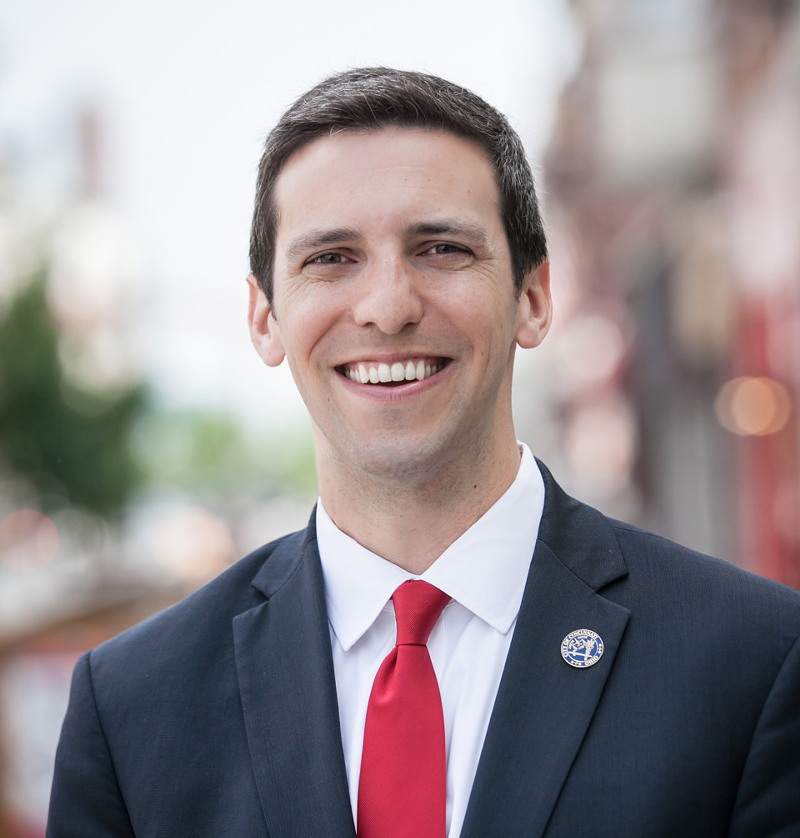If the law lets you drive a car at 16, should you also be allowed to cast a ballot in a local election at that age? One Cincinnati City Councilmember is interested in figuring that out.
Councilmember P.G. Sittenfeld yesterday tweeted that he's heard from some city residents that they would like the voting age for municipal elections set at 16.
"I think it's interesting — and I'd support it," Sittenfeld tweeted. "We're getting the analysis on whether doable from City Law Dept."
Lowering Cincinnati's voting age would take amending the city's charter — something voters (ages 18 and over only, of course) would need to weigh in on. Would voters go for it? Not everyone is thrilled by the idea.
Nationally, the voting age has been 18 since 1971, when the 26th Amendment to the U.S. Constitution barred states from setting it higher. Four states by that point — Alaska, Georgia, Hawaii and Kentucky — already had lower voting ages than the prior constitutionally-mandated age of 21.
Some supporters of the constitutional amendment expressed consternation that young people could be drafted to fight in the Vietnam War before they were old enough to vote. Opponents — including officials in states like Texas and Oregon, who challenged an earlier congressional expansion of the 1965 Voting Rights Act lowering the voting age — argued that 18-year-olds were not mature enough to vote. That challenge went all the way to the U.S Supreme Court, which ruled that Congress had the right to set the voting age at 18 for federal elections but not state and local ones. That, in turn, brought about the subsequent constitutional amendment.
All that is to say that, on the surface, there is nothing to suggest that a state or municipality can't set its voting age lower than 18 if it so chooses. Sixteen states, including Ohio, allow 17-year-olds to vote in party primaries or caucuses if those voters will be 18 in time for the general election. Some restrict that right to presidential elections only, while others leave it open to other races as well.
Some cities have gone further. Takoma Park, Maryland, a liberal-leaning suburb of Washington, D.C., was the first in the nation to lower its municipal voting age to 16 in 2013. At least two other cities in Maryland — Greenbelt and Hyattsville — followed suit. And Berkeley, California lowered the voting age in its school board elections to 16 in 2018.
There are bills in the Oregon and California State Houses that would lower the statewide voting ages there to 16 and 17, respectively. Lawmakers in other states and Washington, D.C. have introduced similar legislation in recent years, but it hasn't passed.
Closer to home, Yellow Springs voters will weigh in on whether to lower the voting age there to 16 in the Nov. 5 election. The village's solicitor said he doesn't anticipate any legal challenges from the state coming over that change or other proposed voting changes Yellow Springs residents will find on their ballots.
As you might expect from an idea floated on a social media site, reaction to Sittenfeld's tweet was, shall we say... mixed. Some supported the concept, but it also drew a lot of criticism. One observation some critics made: the city (and the state of Ohio) just upped the age at which a person can legally buy cigarettes to 21.
Others pointed out that the city needs to get better turning out already-eligible voters. Less than a third of eligible voters cast ballots in the city's last mayoral election in 2017, for example.
"I think a better effort would be to focus on getting more of the already eligible voters aged 18-25 to actually register," one tweeter wrote. "And vote. Last time I checked, nationally, less than 28% were. I personally like the 18 rule, follows the legally adult definition."
For his part, Sittenfeld has said he's still gathering information for now.
"Constituents have asked us about this, so as we do, we're getting them an answer," he wrote in a follow-up tweet. "It would be for municipal elections only; we'll see what the analysis reflects about what Home Rule allows."


